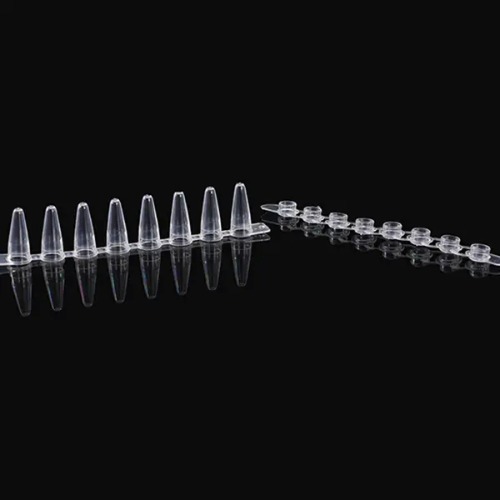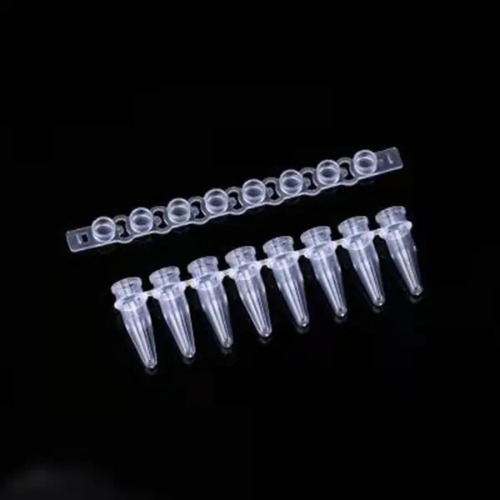The field of molecular biology is constantly evolving, and with it, the tools and technologies used in research and diagnostics. As we look towards 2025, pcr tubes manufacturers are at the forefront of innovation, adapting their products to meet the changing needs of scientists and laboratories worldwide. PCR tubes, essential components in polymerase chain reaction experiments, are undergoing significant transformations to keep pace with advancements in genomic technologies and the increasing demands for efficiency and precision in molecular biology research.
Table of contents:
The Integration of PCR Tubes with Emerging Genomic Technologies
Smart PCR Tubes: Incorporating Data Tracking and Quality Control Features
Customization and Specialization: Tailoring PCR Tubes for Specific Applications
The Future of Wholesale PCR Tubes: Predictions for Market Trends and Innovations
As genomic technologies continue to advance, pcr tubes suppliers are developing products that seamlessly integrate with these cutting-edge systems. In 2025, we can expect to see PCR tubes designed specifically for use with next-generation sequencing platforms, CRISPR-Cas9 gene editing techniques, and single-cell genomics applications. These specialized tubes will feature enhanced compatibility with automated systems, allowing for higher throughput and more streamlined workflows. pcr tubes manufacturers are also focusing on creating tubes with improved thermal conductivity properties, enabling faster and more uniform temperature changes during PCR cycles, which is crucial for the success of these advanced genomic applications.

The future of PCR tubes lies in smart technology integration. By 2025, pcr tubes suppliers will likely introduce tubes embedded with microchips or RFID tags, allowing for real-time tracking of samples throughout the experimental process. These smart tubes will enable researchers to monitor temperature fluctuations, PCR cycle progress, and even detect potential contamination. Additionally, pcr tubes manufacturers are exploring the incorporation of quality control indicators, such as color-changing lids that respond to temperature or pH changes, providing visual cues for sample integrity and reaction progress.

As molecular biology techniques become more specialized, the demand for application-specific PCR tubes is growing. In 2025, we can anticipate a wider range of customized tubes from pcr tubes suppliers, designed to meet the unique requirements of different research areas. For instance, tubes optimized for long-range PCR, multiplex PCR, or reverse transcription PCR will become more prevalent. pcr tubes manufacturers will also focus on developing tubes with enhanced resistance to chemicals and enzymes used in specific molecular biology protocols, ensuring better sample preservation and experimental outcomes.
The wholesale PCR tube market is poised for significant growth and innovation by 2025. pcr tubes suppliers are likely to expand their offerings to include more environmentally friendly options, such as biodegradable or recyclable materials, addressing the growing concern for laboratory waste reduction. Furthermore, pcr tubes manufacturers are expected to invest in advanced manufacturing techniques, like 3D printing, to produce tubes with complex geometries that optimize heat transfer and minimize sample loss. The market may also see a shift towards modular PCR tube systems that can be easily customized for different experimental setups, providing researchers with greater flexibility and cost-effectiveness.
As we approach 2025, the landscape of PCR tubes is set to undergo remarkable transformations. pcr tubes manufacturers and suppliers are driving innovation to meet the evolving needs of the molecular biology community. From smart technologies and customized solutions to eco-friendly materials and advanced manufacturing processes, the future of PCR tubes is bright and full of possibilities. These advancements will not only enhance the efficiency and reliability of PCR experiments but also contribute to pushing the boundaries of genomic research and molecular diagnostics. As laboratories and research institutions continue to adopt these cutting-edge PCR tubes, we can expect to see accelerated progress in fields ranging from personalized medicine to environmental monitoring, ultimately leading to significant breakthroughs in our understanding of life at the molecular level.